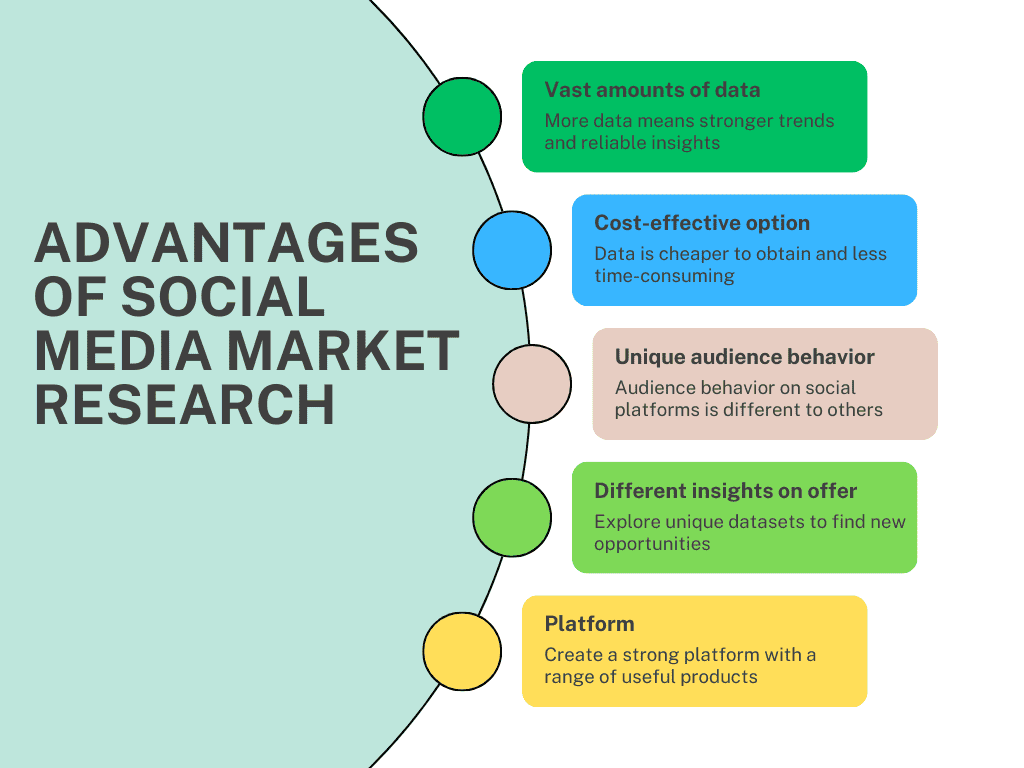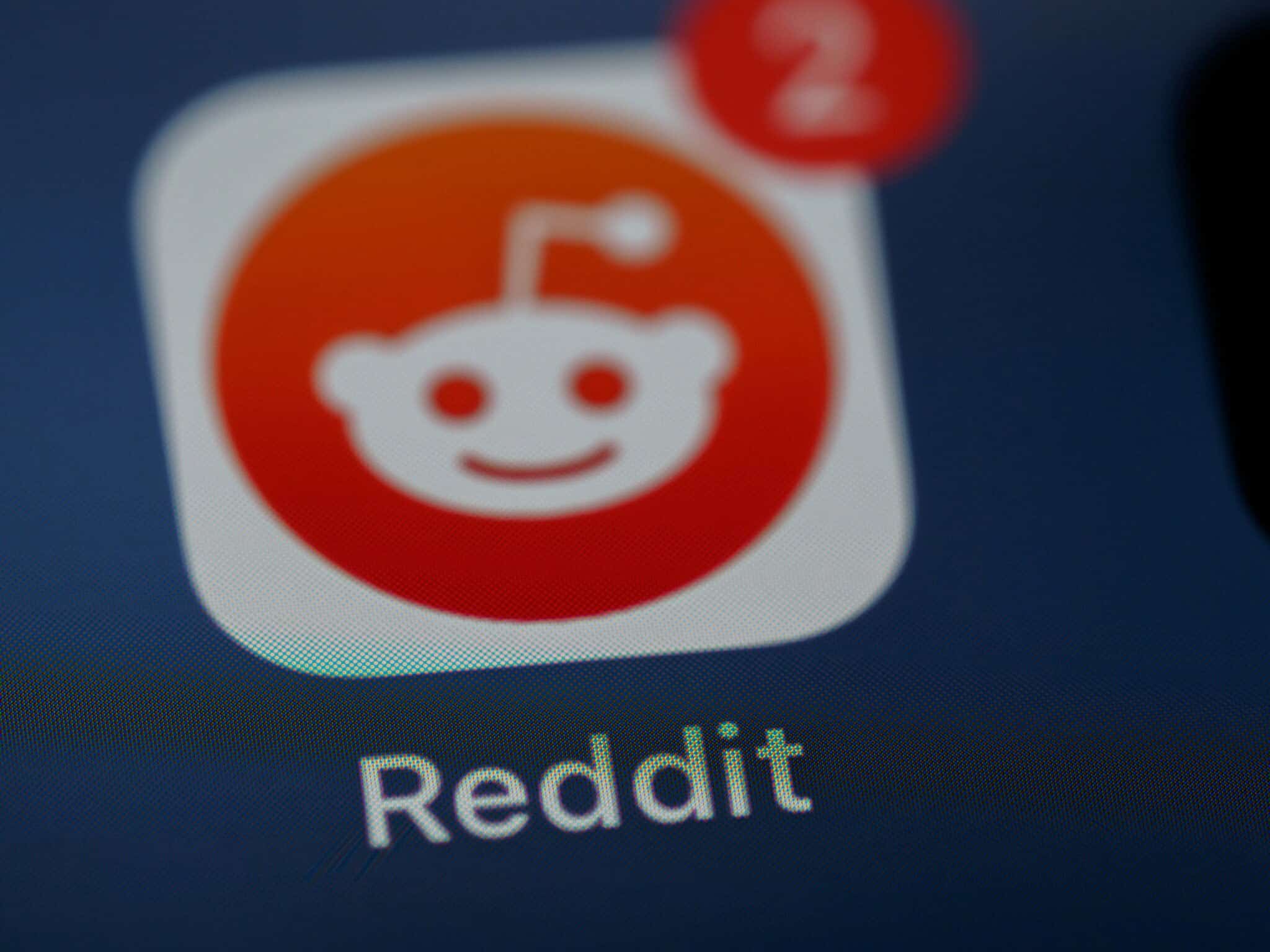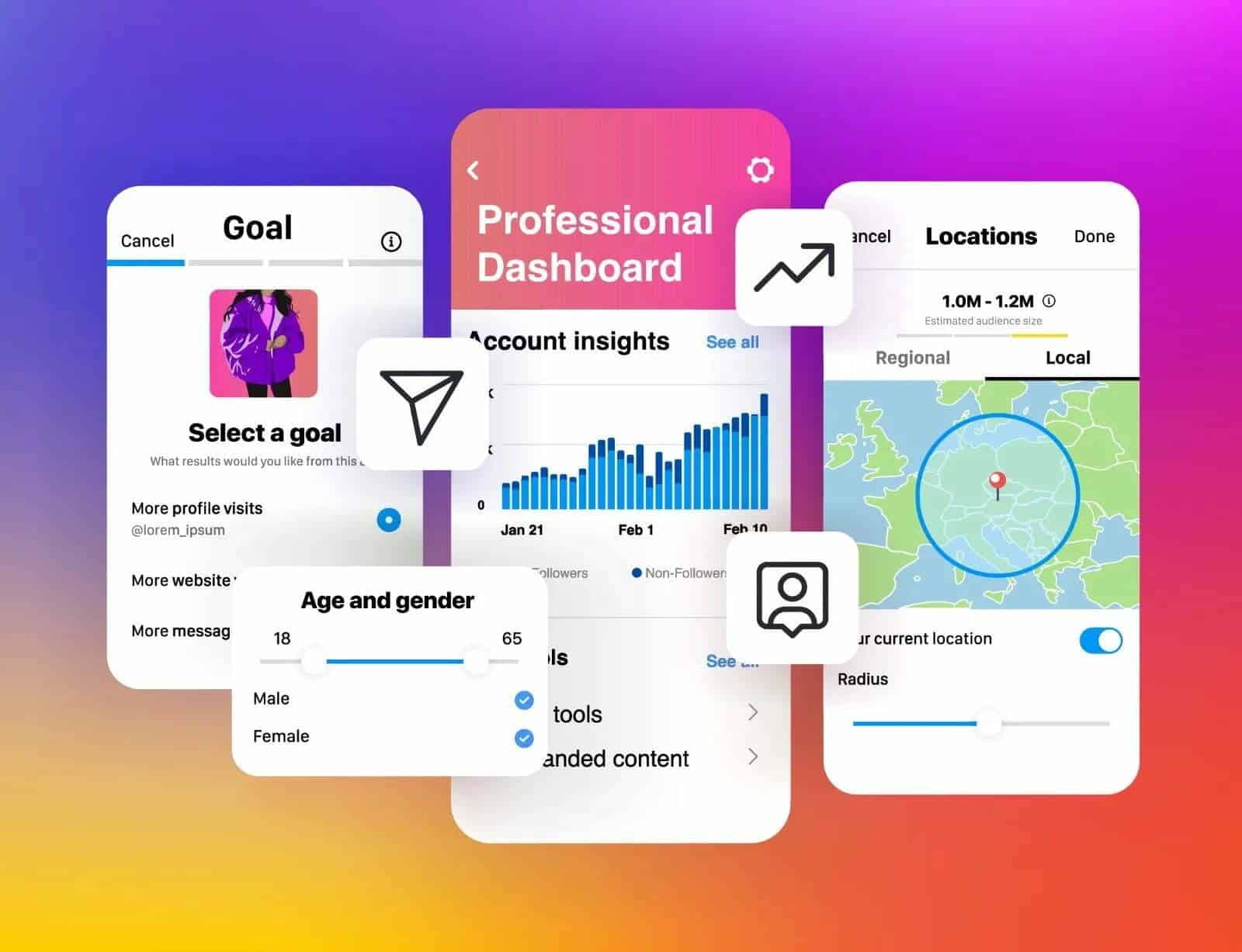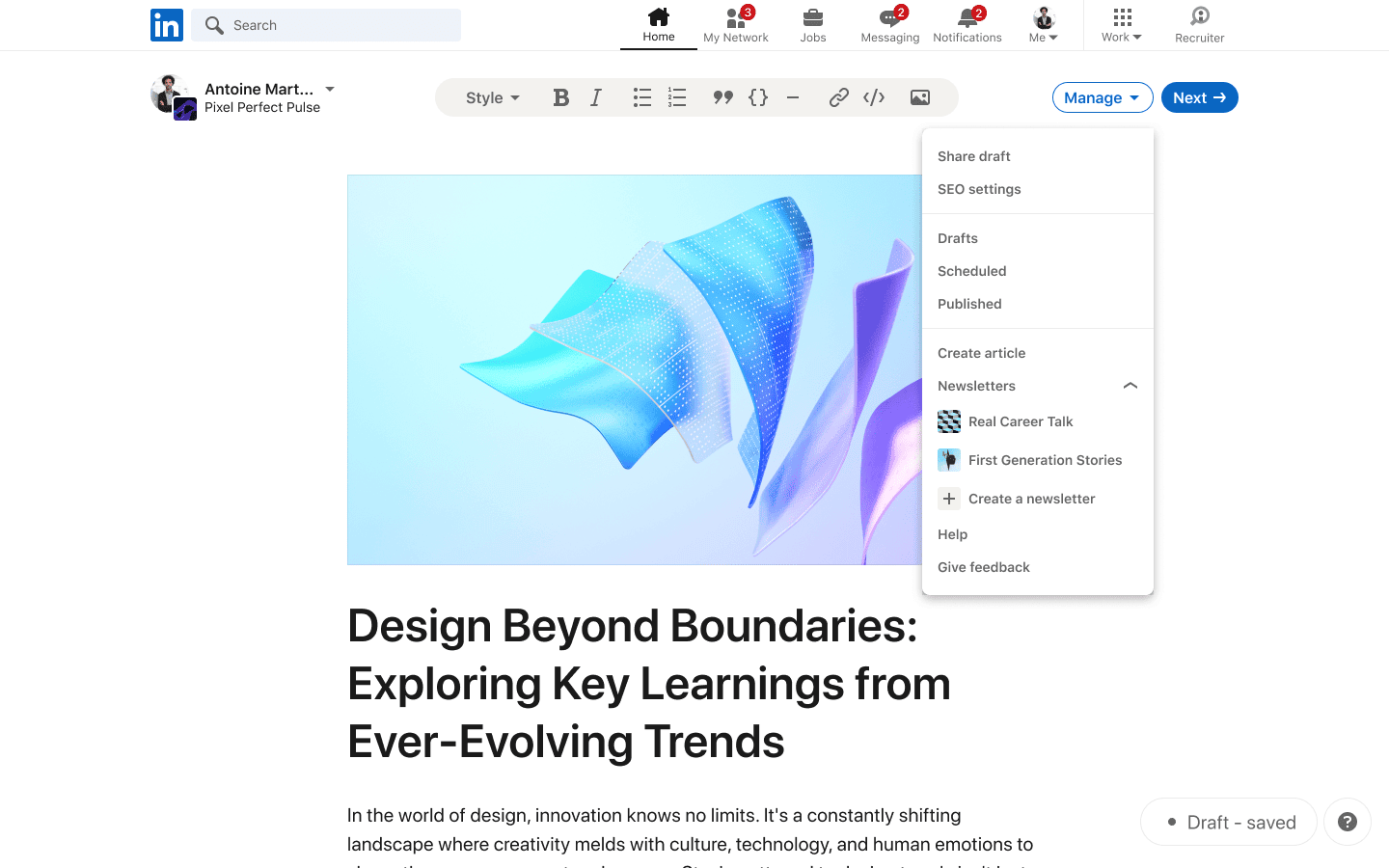Market research is a critical part of any business. Without understanding the landscape and behavior of your target market, any decisions you make about your products, services, or even customers will be a gamble at best.
That said, gathering enough quality data to drive insights isn’t always easy. Plus, there are numerous ways of doing so, so it can become overwhelming.
Most marketing decisions are long-term commitments, so you can’t afford to work with poor-quality data. But one of the largest reservoirs of readily available, quality data comes from social media.
Many of us engage with a range of platforms every day – sometimes multiple times. The data gathered as we do so is often considered more valuable compared to other data sources, as users are not in a purchasing mindset.
The question is, how can you tap into these juicy social media insights and use them to your advantage?
We’re going to explore the numerous methods of using social media to power your market research. But first, it’s worth understanding what social media market research is and the advantages and disadvantages. Let’s dive in.
What is Social Media Market Research?
Social media market research is the process of using historical and real-time data captured from social platforms. The idea is to gain insights into market trends and changes in habits that may impact your business.
Bear in mind that data can encompass a vast range of information, including:
- Identifiable demographics
- Content engagement
- Likes or dislikes
- Location
- Employment
After you’ve gathered social media data, the next step is to analyze and interpret it to garner insights on various topics. You can learn about areas of your business or products using information gleaned from discussions on platforms such as Facebook, Instagram, Reddit, or TikTok and use that to optimize marketing campaigns across the business.
Advantages of Using Social Media for Market Research
There are several reasons why social media is an excellent tool in market research (when leveraged correctly). Many of these are unique to social platforms, where traditional data-gathering methods can’t compete.

Original image created by author
You Have Easy Access to Vast Amounts of Data
Few channels can match the incredible volume of users that popular social platforms retain. Not only do they have a large install base, but many users engage with their chosen platforms daily and have potentially done so for years.
Facebook alone has nearly 3 billion monthly users – imagine the wealth of information you could get your hands on. And that’s just one of the many major platforms waiting to be leveraged.
With this amount of data, you can be confident in any identified trends. Plus, it enables you to make stronger decisions about your product, marketing, and content strategies.
Audience Behavior is Unique
People on social media platforms are in a different mindset to people on ecommerce platforms. Messaging is received differently, as they are not expecting to be advertised or upsold on products or services. Instead, they’re simply engaging with their interests, social circles, and onsite content that aligns with their tastes.
For example, if someone sees an ad showing off conferencing software, they may ignore it. But if they see an insightful piece of content showing how to have an Android conference call with friends, they’ll be far more likely to watch or read it.
The data collected is incredibly valuable for this reason, as it will show insights that other forms simply cannot.
You Can Leverage Different Insights
Some data can only be sourced through social media. Ultimately, these free platforms are built around data collection for profit, so businesses benefit from the rich and unique data points.
Websites like Reddit, in particular, are beneficial for gathering unique data, as the entire platform is dedicated to community-based, in-depth discussions about anything and everything. This content extends beyond the quality available from competing platforms and is often informational, in-depth, and insightful.

Free to use image sourced from Unsplash
Disadvantages of Using Social Media
As powerful a tool as it is, there are some negatives to using social media for market research. However, you can often mitigate them with the right approach. So, rather than letting them dissuade you from investing in social media as a core tool in your market research, consider what the pros and cons mean for your company.
Huge Datasets Require Proper Management
To get the most from social media, working from larger data sets is always beneficial. The more data you can work with, the stronger the patterns emerge and the more confident you can be in making decisions.
Unfortunately, this can often make analyzing and finding insights difficult as you try to sift through the mass of information.
That said, there are advances in social media artificial intelligence tools that help you better manage data, though this requires additional infrastructure some businesses won’t have.
However, if you have the resources to leverage AI as part of your market research, it’s worth exploring. The ability to find insights inside the data is remarkable, and many businesses are already integrating AI into their marketing strategy.
Some Businesses Can’t Leverage Data Effectively
For some companies, it simply isn’t beneficial to gather data for market research using social media. This can be due to a lack of social engagement if the business is small. Or it can be that the industry they operate in doesn’t necessitate social media study.
For example, a B2B company helping customers meet merchant PCI compliance requirements for their payment platforms will have little use of data from social media. They could potentially find data regarding people’s preferred payment methods on ecommerce platforms, but that data would be far richer from the ecommerce website itself thanks to transactional information.

Image sourced free for use from Unsplash
7 Ways to Use Social Media for Market Research
So, you’ve weighed up the pros and cons and are now planning to leverage social media for future market research. There are several use cases that can help you obtain valuable data for your marketing efforts.
These tips should be considered as part of your overall strategy and workflow, not as one-time endeavors, and will form a key aspect in how you build understanding over time.
Conduct a Competitor Analysis
Chances are your key competitors engage with their audience through social platforms, and this alone can provide useful insights. You can see their chosen messaging and reactions from users, which can help determine messaging effectiveness.
It’s possible to gauge customer appetite through competitor research. However, the process will be more challenging without the use of third-party tools as you won’t have access to the internal data. Still, this process can be incredibly useful to see how an audience engages with certain types of content, as well as whether specific topics or services are received positively or negatively.
Keep in mind that individuals who are directly engaging with a business page will likely be more amenable to their messaging and will be higher-value customers. They could also be existing or prospective customers for your business, depending on the extent of crossover with competitors.
Use Customer Insights for Product Ideation
You can use social media data to identify customer pain points when using your product and improve products and services in the future. Or, if you’re bringing a new product to market, find the problems individuals need solutions for and design accordingly.
For example, a unified communications company might spot that people regularly search on YouTube for ways to forward calls from landline to cell phone. Or perhaps it’s a common topic among businesses in Facebook and LinkedIn forums.
As a result, the communications company might expand their offering to include such a service, thus capturing market share and building loyalty among customers. This understanding will also help to create marketing materials, basing content on solving the identified problem.
Improve Content Marketing With Historical Data
You can get instant feedback on the success of your content marketing efforts through real-time user engagement. But historical data is a guiding light for your future content strategy.
Take time to review previous content and explore the metrics to determine success. Available metrics will depend on the type of content you are reviewing but can include:
- Views: The number of individuals who watched a video or saw a post
- Page engagements: The total interactions on your page and posts, including likes, comments, and shares
- Engagement rate: The ratio of engagements relative to the number of views or visits a content piece has
- Video completion rate: The percentage of users who watched the entire video content
- Audience growth rate: The number of follows received relative to previous periods
- Click-through rate: The percentage of users who follows links within your posts
- Conversion rate: The percentage of users who went on to complete a tracked action, such as a subscription, download, or purchase
Each of these metrics offers different insights into how your content is performing. Use this historical data to sculpt future content creation. Identify the posts that generate the most buzz from your target audience and tailor future content around this insight.

Image sourced from Adobe.com
For example, if a communications company is researching its social media metrics, historical data may show that comparison articles or videos generate the most engagement. This knowledge can then be leveraged to create content around topics like call center vs contact center or single vs multi-tenancy software. These content pieces can be positioned to both educate and highlight any viable services in the company’s product stack.
Strengthen Brand Messaging
It’s likely that your business or product will have been discussed online at some point. You can use these perceptions to understand how your brand is perceived by the wider audience.
Brand identity is a vital aspect of keeping your audience happy and your business running profitably. So it’s worth paying attention to brand perception.
Gather conversational data about your business and competitors to see how people are talking about your company online. You can use both reviews and online discussions to do this. Use this data and recognize perception through keyword monitoring and analysis.
Monitor Trends
One of the best uses of social media is understanding how customer behavior changes over time. Trend monitoring is a vital part of any market research, as you need to be aware of the changing landscape in your industry at all times.
Plus, the connected world we live in means that trends can rise and fall overnight, making it essential to capture the essence of buyer intent.
Your marketing campaigns should tap into these where possible. Keep in mind there are various types of trend-based marketing strategies, even down to the way content is delivered, and the various platforms offer unique content opportunities others do not.
For example, X (previously known as Twitter) focuses on bite-sized content and the propagation of content through comments and shares, underpinned by the use of hashtags. The hashtag system creates topic clusters around specific discussions, which is a direct indicator of virality.
Instagram and TikTok are visual-first platforms that rely on likes and view counts to showcase content performance. The throwaway nature of shorts and reels make for unique research opportunities, as you can trial content through these channels and adapt as needed.
Fundamentally, each platform will deal with trends in different ways, but they are all built on trend-based content delivery. Social engagement is the fuel that keeps the fire burning, so be sure to lean into the data and ride the trends as they come and go.

Image Sourced from LinkedIn.com
Fill Gaps in the Market
One of the most effective ways to generate sales is to find a niche that isn’t being exploited. Building products to meet demand is a tried-and-tested method of building a business product line – and social media can be the jumping-off point.
If you’re a new business, conducting market research on social media can be a great way of identifying gaps in the market. Explore discussions to identify challenges faced by people in your sector. Once you confirm that there is significant demand, design or adjust your business plan or products to meet it.
Engage Customers
While it’s beneficial to gather large datasets, sometimes the best way to gain insights is to directly engage with the source itself. A social media content strategy should already be underway, but consider adjusting the roadmap to include content pieces on topics or products you want additional information on.
People will be able to directly interact with your content and provide you with the required data directly, saving you time and giving you immediate information.
Next Steps For Using Social Media For Market Research
Social media is a powerful tool, offering businesses a host of opportunities to become closer with their customers than ever before.
By leveraging social media for market research, you can retrieve vast amounts of data about your brand, products, competitors, and customers. With these insights, you can optimize your marketing strategy to better perform and deliver for your audience long-term.


